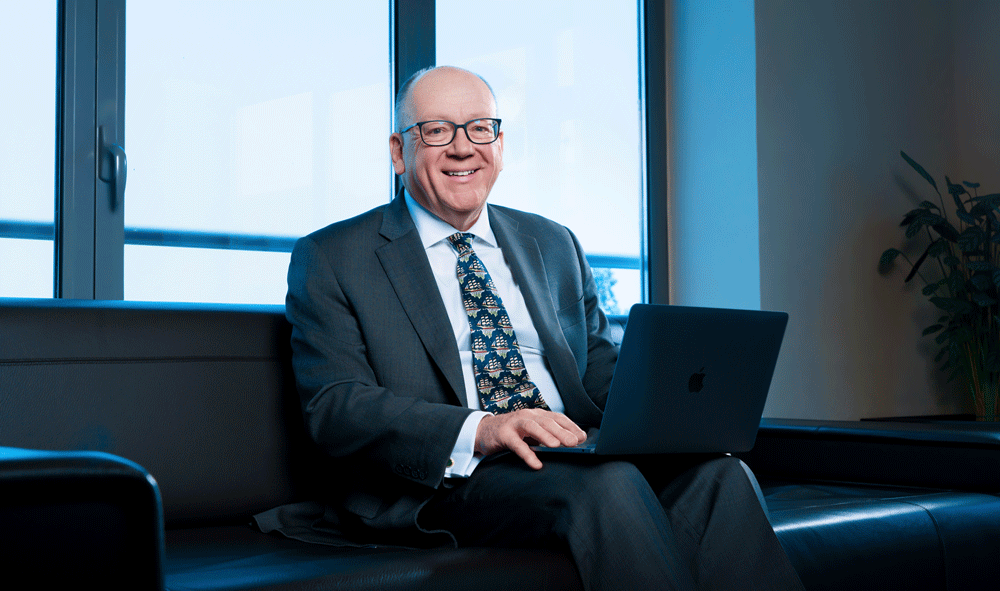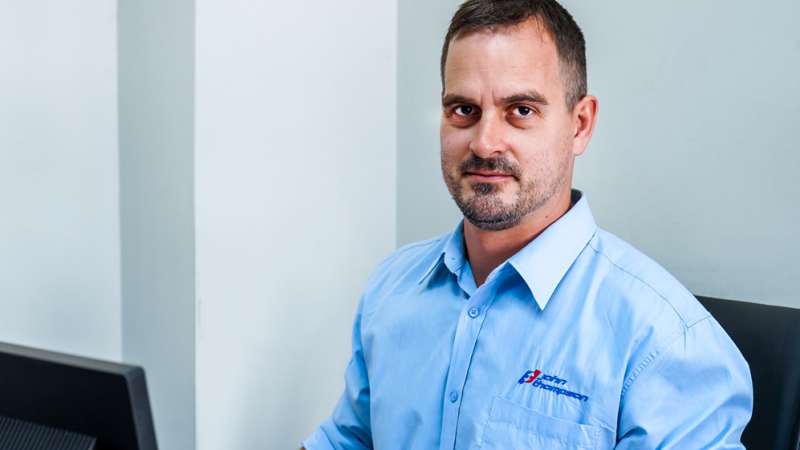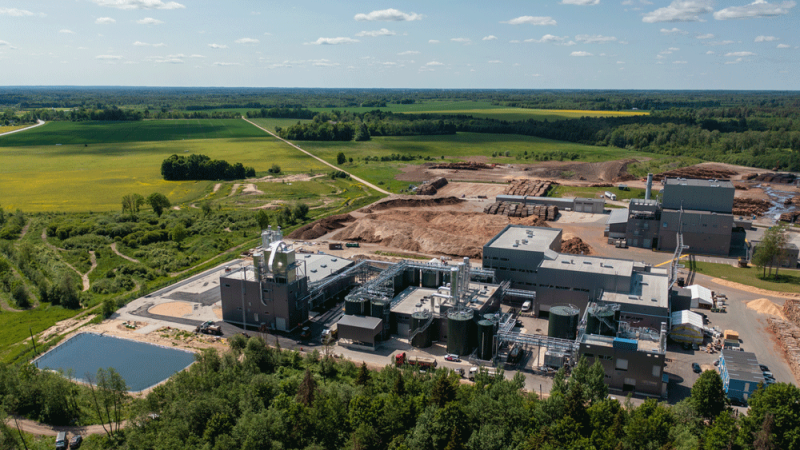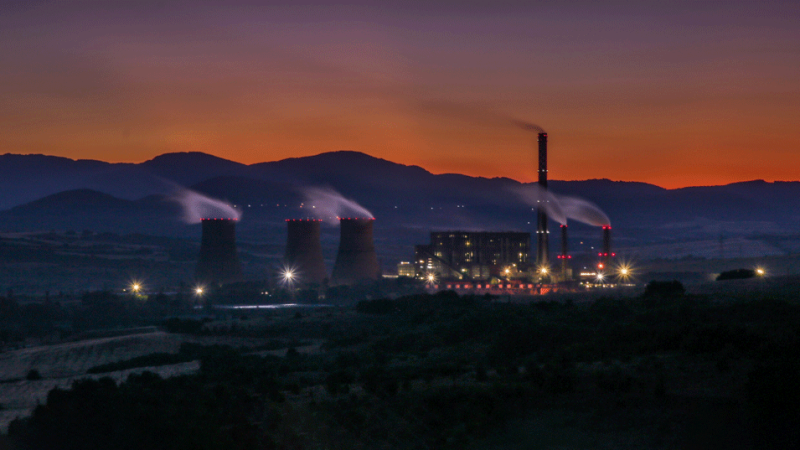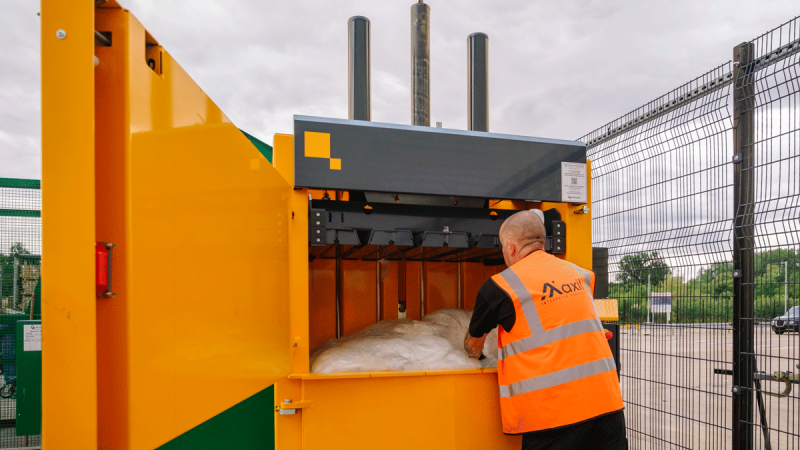CC Energy Development is an independent international oil and gas operator based in Oman. It is a company defined by thinking globally, acting locally, and embracing a growth mindset.
“We have been in Oman since 2007, operating as a small independent,” says Walter Simpson, Managing Director at CC Energy Development. “We operate Blocks Three and Four, the onshore blocks in Eastern Central Oman.”
CC Energy Development operates a large acreage position of 28,000 square kilometres, an area the size of the Southern North Sea. Within that sector, CC Energy took the fallow blocks and made an oil discovery in a sandstone formation that would form a foundation for the company’s future growth. The site saw its first production in 2010, followed up by the establishment of carbonate reservoirs. Today CC Energy Development has five producing stations that have peaked at 40,000 barrels a day production, and are now producing 30,000 barrels a day.
Those stations are run by a staff of just under 700 people, two thirds of them working in the field, a third of them running the company’s office, and 92% of them originating from Oman itself.
“We are a locally focused organisation with a high number of Omanis in key positions in the business,” Simpson says.
Talking to Simpson, it is clear how proud he is of what CC Energy Development has achieved. It is a company built on organic growth and Omani talent.
“When we took these blocks on, they were fallow, and we have grown that production from discoveries we made ourselves,” says Simpson. “A key part of our strategy as a business is Omanisation.”
A Three-Pronged Approach
For Simpson, the company’s achievements are built on three pillars.
“The first is you want to be a low-cost operator,” Simpson says. “If you are not low cost, you have got challenges. But with that, we also want to make sure we have a low environmental footprint, and that involves work in a number of areas. Everyone is conscious of greenhouse gases. We want to make sure we are managing our emissions as efficiently and effectively as we possibly can. We intend to achieve net zero by 2050, and we are well on target to do that.”
CC Energy is not just looking at its emissions, but also how it disposes of the water that comes up with its oil. The company ensures that this hypersaline water is disposed of in a responsible manner that will leave no environmental legacy. Alongside these initiatives, CC Energy Development works to reduce its waste streams as much as possible. Anything left over is disposed of responsibly through recycling and reuse.
As well as reducing CC Energy’s costs and environmental footprint, the third pillar of CC Energy’s strategy is the one Simpson believes is most important.
“It is no good being a low-cost operator, or reducing your environmental footprint, if the community you work with doesn’t like you. We have to demonstrate our value to the communities that we work with,” Simpson says. “We want to develop local people. We have a number of key positions held by Omani staff. We invest in developing local businesses so that we can give back to the local economy. We have a CSR program that positions us to work with the communities through education and health. We have a multifaceted strategy that is not just about giving money, but about developing businesses, developing people and working with worthy causes.”
Simpson does not see these three elements as three separate components, but as a three-way symbiosis.
“If we have a good environmental footprint it is good for the communities we work with, and it can reduce our costs. It works symbiotically,” Simpson tells us.
A More Sustainable Way
Simpson is particularly enthused about the work the company is doing around associated gas, the gas that accompanies its oil production. The quantities of gas that come out of this production are not enough to export, but they are still significant. While it is possible to simply flare this gas, CC Energy Development is instead looking for ways to effectively utilise that gas.
“We have a large geographical area with facilities spread far and wide, and traditionally we have used diesel generators to power those facilities,” says Simpson. “Instead, we decided to take the gas produced with our oil and use it in gas engines to generate electricity and distribute it around our facilities.”
This project achieved first power last year, in an undertaking that will complete Phase Two by the end of this month. It has already displaced 60% of CC Energy Development’s diesel generation, reducing emissions and costs simultaneously.
Similarly, grey water from CC Energy Developments sewage was trucked in diesel tankers to a municipal facility, generating emissions and road safety risks and taking up capacity at municipal facilities.
CC Energy is reducing the need for that by using mobile reed beds at the site, which clean the greywater so that there is no need to ship it away, and is instead composted with on-site food waste.
“That idea of using waste streams to improve the environment our workers live in came from our staff,” Simpson says.
It is really clear how much Simpson believes in his staff.
“We have an annual graduate recruitment program and we get an awful lot of interest,” Simpson says. “The majority come from Omani Universities, but also bring in Omanis who are educated overseas.”
A Unique Place
Those people are just part of what makes Oman such a great place to do business, as Simpson shares with us.
“I have worked all over the world, and Oman is a unique place,” he tells us. “It has an extremely good fiscal environment. Sanctity of contract is important to the ministry, and they have always been very helpful. I think that is an important part of what makes Oman attractive to companies, alongside an extremely capable workforce.”
While CCE Energy employs Omanis educated at home and aboard, Simpson remains passionate about employing Omani citizens.
“We have taken our senior leadership team from 35% Omanis to 80% in the space of five years,” Simpson says. “In most of our meetings, the majority of people are Omani, with a few expatriates.”
That said, Simpson’s goal is not to have a 100% Omani staff.
“It’s good to have diversity,” he says. “Where we are currently at, with 8 to 10% non-nationals, feels about the right level.”
It leaves CC Energy Development on a path to a bright future.
“We have been here since 2007, making a 15-year investment in the country with a licence that runs until 2040,” Simpson points out. “We want to be here for the duration, not just for ourselves and our shareholders, but for Oman. We have added two new blocks to our portfolio. Our whole raison d’etre is that we have a business valued by the community, so that they see the worth in retaining us.”

